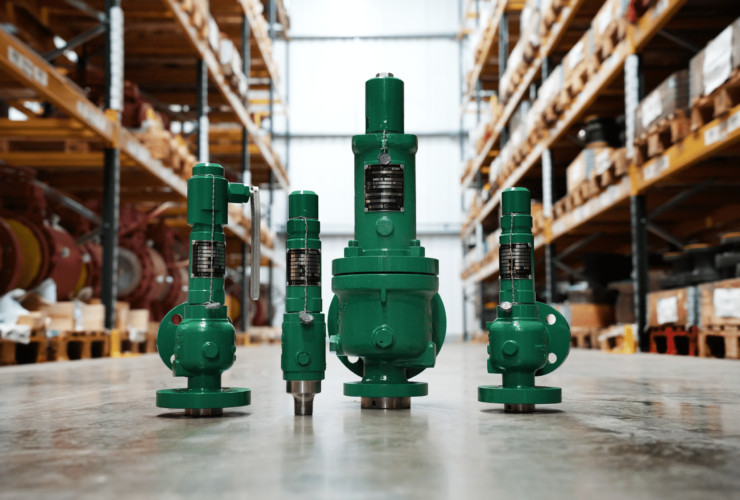Industrial tank storage refers to the practice of storing various types of fluids or gases in large containers typically made of metal or reinforced concrete. These tanks serve a crucial role in industries such as oil and gas, chemical manufacturing, pharmaceuticals, food and beverage processing, and water treatment. The contents stored can range from raw materials and intermediate products to finished goods and by-products.
Importance of Selecting the Right Industrial Valve
Selecting the appropriate industrial valve for these storage tanks is paramount for several reasons:
- Safety: Valves control the flow of liquids or gases into and out of the tank. Proper selection ensures safe handling and minimises risks such as leaks, spills, or accidents.
- Efficiency: The right valve enhances operational efficiency by providing reliable performance, reducing downtime for maintenance, and optimising fluid flow within the tank system.
- Regulatory Compliance: Industries must adhere to strict regulations governing storage and handling of hazardous materials. Valves play a critical role in meeting these regulatory requirements related to safety, emissions, and environmental impact.
Factors Influencing Valve Selection
When choosing valves for industrial tank storage, several factors must be considered:
1. Tank Contents
- Type of Fluid: Identify whether the tank stores liquids, gases, or both. Consider the characteristics of the fluid such as corrosiveness, toxicity, flammability, or viscosity.
- Temperature and Pressure: Understand the operating conditions within the tank. Valves must withstand and operate effectively under high temperatures, extreme pressures, or fluctuating conditions.
2. Environmental Conditions
- Exposure: Determine if the tank and valves will be exposed to outdoor elements such as weather, sunlight, or chemicals. Valves exposed to harsh environments require materials resistant to corrosion, UV degradation, or chemical interactions.
- Chemical Compatibility: Consider the compatibility of valve materials with substances in the environment surrounding the tank to ensure longevity and performance.
3. Regulatory Requirements
- Safety Standards: Valves must comply with industry standards such as ASME B16.34 and API 598 for the oil and gas industries.
- Environmental Regulations: Ensure valves meet regulations regarding emissions, leakages, and environmental impact. This includes standards set forth by environmental agencies or local governing bodies such as ISO 15848-1.
4. Valve Types and Features
Choose valve types based on their specific functions and operational requirements:
- Floating Ball Valves: Suitable for small bore pipework, quick shut-off and minimal maintenance.
- Triple Offset Butterfly Valves: For larger diameters they provide effective tight shut off and are compact for space-saving installations.
- Check Valves: Prevent backflow of fluids especially around pumps.
- Relief Valves: Essential for protecting against overpressure situations within the tank and pipework.
- Control Valves: Regulate flow rate or pressure, crucial for maintaining operational efficiency.
5. Material Selection
Select valve materials based on compatibility with tank contents and environmental conditions:
- Metals: Carbon steel, stainless steel, or exotic alloys for corrosive environments.
- Plastics: Polypropylene, PVC, or PTFE for non-corrosive or chemical-resistant applications.
- Elastomers: EPDM, NBR or Viton for sealing materials in valves, ensuring leak-free operation.
6. Maintenance & Lifecycle Costs
Consider ongoing maintenance requirements and lifecycle costs when selecting valves:
- Accessibility: Valves should be easily accessible for inspection, maintenance, or replacement without interrupting tank operations.
- Cost Considerations: Evaluate initial purchase costs versus long-term maintenance expenses to determine the most cost-effective solution.
Choosing the right industrial valve for your storage tank involves a comprehensive assessment. By carefully evaluating these factors and selecting valves that meet safety, efficiency, and compliance standards, you can ensure optimal performance and longevity of your industrial storage system. Consulting with valve manufacturers and experts like AC Valve Alliance can further assist in making informed decisions tailored to your specific operational needs. Contact us now to find out more.



